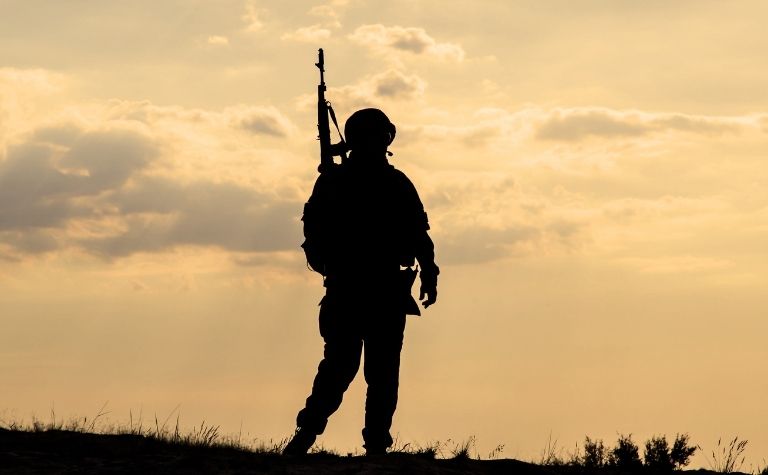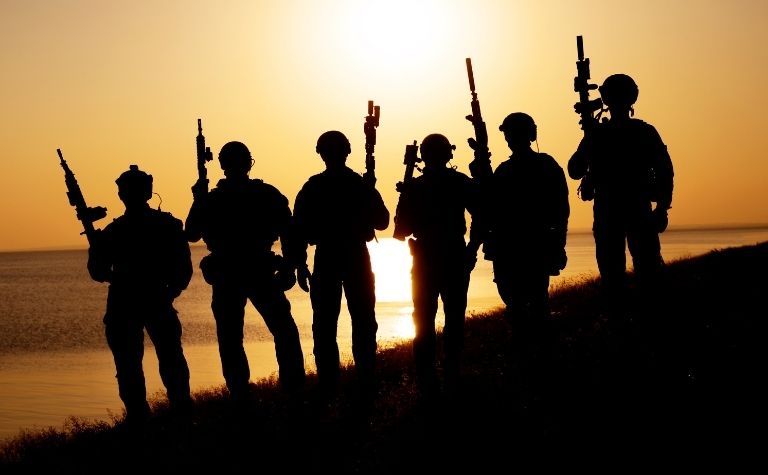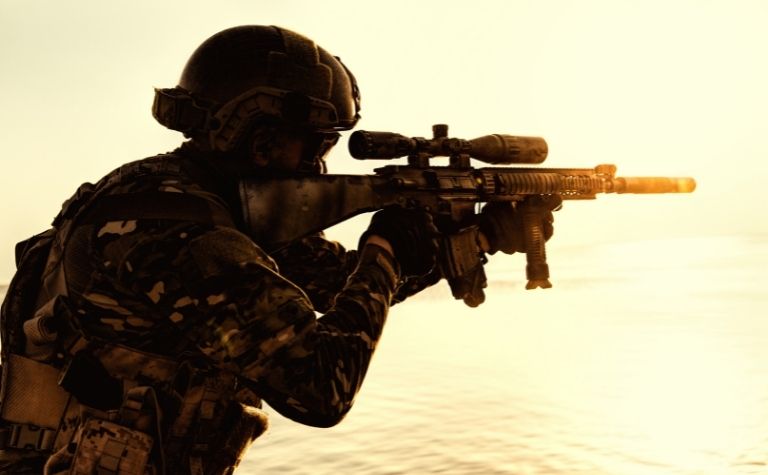Of all the people and societies that have existed throughout history, few have left as lasting an impression as the Scandinavian warriors called the Vikings.
Not surprisingly, the Vikings have a significant following within the ranks of military forces in the United States and around the world.
Today’s soldiers even repeat some of their sayings.
The Vikings believed that if they died in battle, Valhalla awaited them. So, “until Valhalla” means that the fight will continue even if death is the result.
“Until Valhalla” conveys the simple yet powerful message that there is no greater honor in life than to die with valor. This is why the words “until Valhalla” hold special meaning among soldiers today.
Keep reading to learn more and see a video of soldiers shouting, “Until Valhalla!”
Also, see Is Valhalla Heaven or Hell? to learn more.

Viking Beliefs: What is the Origin of “Until Valhalla”?
There is no doubt that the Vikings believed in Valhalla. In fact, it was central to their worldview.
This belief shaped their attitudes toward living and fueled their legendary courage in the face of peril or death.
What did dying in combat mean to a Viking?
To the Vikings, dying in combat was the highest honor. It signified ultimate bravery and ensured a place in Valhalla.
Such a death was a ticket to eternal glory, reflecting a warrior’s valor and dedication.
What was Valhalla to a Viking?
To a Viking, Valhalla was a majestic hall in Asgard, ruled by Odin. It was where warriors who died bravely in battle were taken.
In Valhalla, they feasted and prepared for the final battle, Ragnarok. It symbolized honor, valor, and an eternal reward for a warrior’s courage.
Why was valor important to the Vikings?
For the Vikings, valor was a prized virtue, deeply rooted in their culture. It determined one’s honor and reputation.
Valor was not just about fighting; it was a testament to one’s character and standing within the culture.
Also see Did Female Vikings Go to Valhalla? to learn more.
The Significance of “Until Valhalla” in Modern Militaries
The phrase “until Valhalla” is an abbreviated version of a popular saying among members of different militaries, meaning “until we meet again in Valhalla.”
It is also commonly shortened to ’til Valhalla. [1]
The Telemark Battalion of the Norwegian Army
The Telemark Battalion of the Norwegian army is an elite infantry group that served with distinction in Afghanistan as part of NATO’s military presence in the war against the Taliban. [2]
In 2010, under the command of Major Rune Wenneberg, this unit gained widespread attention for an impassioned rally prior to engaging with enemy forces.
During the rally, the soldiers chanted “til Valhalla!” in unison and to great cheers. [3]
Not only did this incident make international headlines, but it also won the respect of military forces and commanders around the world.
The uses of the Viking motto in militaries today
In modern militaries, the phrase “until Valhalla” can have different meanings:
- “Until Valhalla” conveys a strong sense of camaraderie among peers, particularly the idea that, ultimately, they are comrades in life and beyond
- It promotes the notion that a greater destiny awaits soldiers and members of the military who fall during conflict and, therefore, serves as a powerful rallying cry
- And perhaps most importantly, “until Valhalla” reinforces the mindset that members of the military who are killed in action may be gone, but they will never be forgotten [4]
The words “until Valhalla” hold special meaning to those who utter them and those to whom they are spoken. They are meant to encourage, uplift, and ultimately pay respect.
The Til Valhalla Project: Honoring Fallen Heroes
The Til Valhalla Project is an initiative that seeks to pay tribute to fallen heroes in the military who have lost their lives, both in combat and at home.
Recognizing the tragic reality of veteran suicides, the organization takes proactive steps to raise awareness about this pressing issue.
By providing memorial plaques to the grieving families, they offer a tangible token of remembrance, ensuring that the sacrifices of these fallen heroes are never forgotten.
Beyond this, the Til Valhalla Project actively engages with the community, organizing events and campaigns to support the families affected by such losses.
Their overarching goal is not only to honor the fallen heroes but also to foster a supportive network for those left behind, emphasizing the importance of unity and collective healing.
Also, see Who is the God of War in Norse Mythology? to learn more.

Do People Still Believe in Valhalla Today?
Needless to say, the world is a different place today than it was when the Vikings were at the peak of their dominion over Northern Europe centuries ago.
Even though old Norse religion is experiencing a major revival in modern times, its practices and beliefs are tempered by contemporary values and practicalities.
Even the most devoted followers of Norse paganism might not claim that Odin still rides his eight-legged horse, Sleipnir.
However, the values and attributes Odin represents remain highly respected and revered.
People today still believe in Valhalla, not necessarily as a literal afterlife destination.
Instead, it’s seen as a symbolic representation that one’s good deeds and honor in life leave a lasting impact even after they pass away. [5]
In other words, the concept of Valhalla to followers of heathen-inspired religions like Asatru serves as a spiritual roadmap for navigating life’s challenges.
Another modern-day interpretation of Valhalla reinforces the belief that just as the Vikings did so many centuries ago, people should focus on living life in the here and now and not be preoccupied with where they will spend the afterlife.
The Vikings believed that their fates were already written and could not be changed and therefore focused on ideals like honor, valor, courage, and hospitality to their peers.
Also, see Norse Gods and Greek Gods Compared to learn more.

What Is Valhalla Like in Norse Mythology?
As it is described in Norse poems and sagas, Valhalla is a warrior’s paradise
Odin’s Hall, as it is also known, is situated in Asgard, the realm of the Aesir gods, with features that defy the imagination, including:
- A roof thatched with golden shields
- Ceiling rafters fashioned from spears
- An immense size beyond proper measure, as indicated by over 500 doors, each wide enough for 800 soldiers to walk through side-by-side
Aside from its mythical structural attributes, Valhalla serves as an exclusive assembly hall and training ground for Odin’s einherjar.
Resurrected Viking warriors train by day in preparation for Ragnarok, but by evening, all their wounds and injuries are healed.
A nightly feast is held with limitless food and drink as warriors fraternize with each other in the company of Odin and his Valkyries.
Through the eyes of a Viking warrior, Valhalla represents the ultimate reward for courage and valor on the field of battle, with the honor of keeping company with the noblest of Norse figures and serving on Odin’s personal army.
With such inspiration in mind, it is no wonder that the Vikings rank among history’s most fearsome fighters ever.
Also, see Norse Mythology and Christianity Compared to learn more.
References:
[1] The Focus
[2] Lingiaholic
[3] Lithuania Tribune
[4] Military News
[5] Asatru
